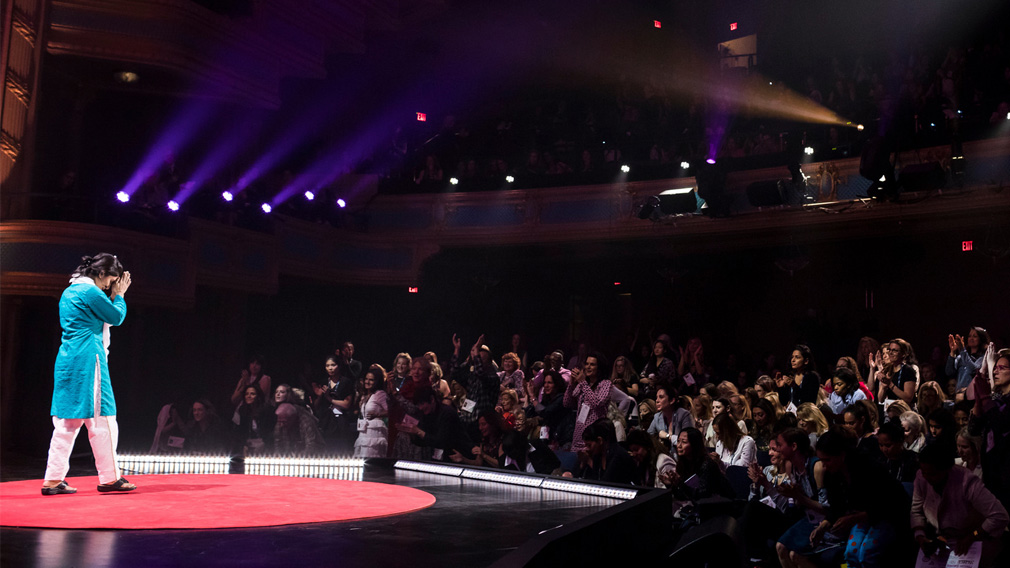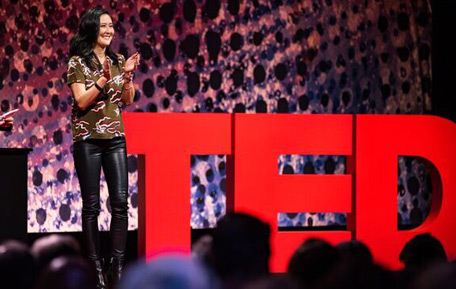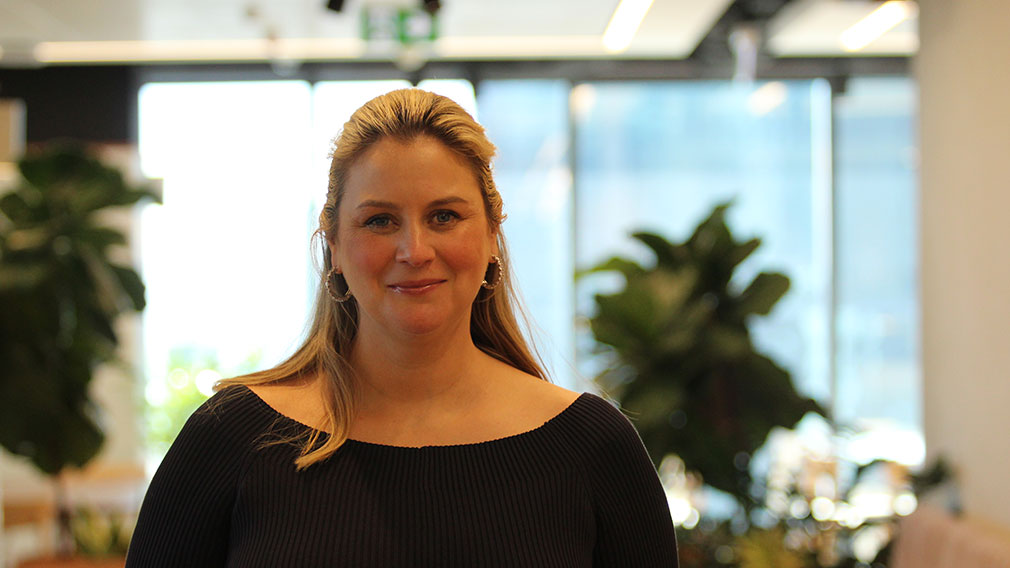What TED’s told us about the power of ideas

Shameem Akhtar, speaking at TEDWomen in Louisiana last month, is among thousands to have taken to the TED stage to spread ideas. (Stacie McChesney)
Every competitive organisation knows that a stream of fresh ideas is the “secret sauce” to keep them out front, especially in a world where “disruption” has become the new normal.
The problem is how to get them. While it’s an age-old question, focus on it has started to snowball in recent years.
Just look at how many employees today have “innovation” in their titles. Whole teams are now dedicated to “ideation”, offices have purpose-built “innovation zones”, and a web search of “how to get ideas from employees” serves up literally hundreds of blogs.
That’s not surprising: innovative thinking in businesses is hard to uncover. It can reside in the most unexpected places, and is often held by employees who don’t “do” innovation. It’s made tougher as most employees are relentlessly executing rather than thinking, and very few even know the right channels or champions to have their ideas heard.
The collision of these factors was a catalyst for the creation of the TED Institute.
TED, which started as a conference in 1984, launched the TED Institute in 2013 to partner with organisations to draw out employees with ideas worth spreading. The TED Institute puts the employees through the same regimen that prepares speakers for the TED main stage. Intensive one-on-one development with a curator and speaker coach helps refine their ideas into a compelling format and the process culminates in an event hosted by TED. The talks are then freely shared with a global audience via TED.com.
Today, we’re hosting our first ever Australian-based Institute with Westpac, our newest TED Institute partner. Fifteen speakers are taking to the stage, covering topics as diverse as how to root out slavery in the supply chain, to how to bring more Indigenous Australians into the technology field, to the case for talking more about death.
This diversity reflects our ethos that the ideas we help unlock must be worth sharing. We do not allow talks that simply promote a company or product. As a non-profit, our mission is grounded in spreading ideas, not commercial gain. Indeed, any money earned through our partnerships and conferences is poured back into TED to ensure TED Talks are available for free and support initiatives like the independent TEDx community, TEDEd, TEDFellows and TED Translator programs.

Lisa Choi Owens at a TED@Tommy event at in Amsterdam last month. (Richard Hadley)
While TED partners with hundreds of organisations around the world, Westpac is one of less than ten to have worked with the TED Institute, joining the likes of BCG, IBM, Intel, StateStreet, Unilever and UPS. We work with a limited number of committed Institute partners to ensure we dedicate the requisite amount of time and effort in finding and spreading the most compelling ideas.
Partner organisations have told us they’ve found the process to be an incredible catalyst for shaking the organisation up to get ideas out. The inherent trust and respect for the brand makes the invitation to participate powerful – we often hear that sharing ideas from the TED stage is not only on many a “bucket-list” but is truly life changing.
The benefits go well beyond simply shining a spotlight on those employees who make it to the stage. It helps to grow the organisation’s brand as a “thought-leader” and, crucially, sends a signal to employees that sharing and seeking out new perspectives is highly regarded. So often, simply listening to a different view on a common issue – perhaps around disruption, the ethics of data or the future of work – can light an unexpected fire in your own thinking to help solve business problems.
Not every organisation can or will partner with the TED Institute, but I believe all large organisations can apply similar principles.
Create a regular forum where employees – from any part of the organisation, not just those who have “innovation” in their titles – can share their ideas outside of their day-jobs. Invite them to express ideas that are not just about your organisation’s products, but tap into their personal experiences and passions. Importantly, provide tools and training to help them best express them verbally.
The power of investing in uncovering, hearing and expressing ideas on a regular basis is astonishing.

